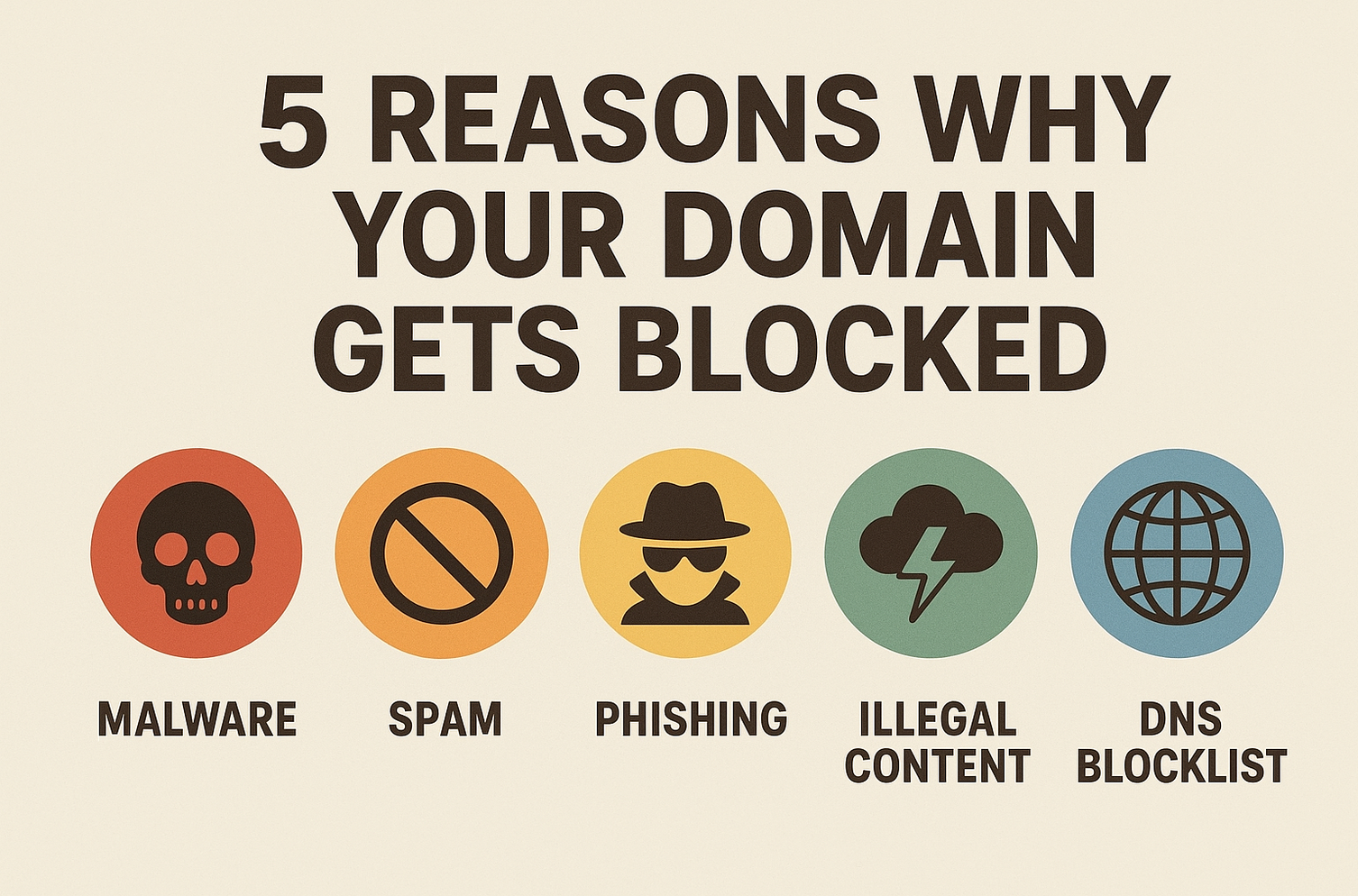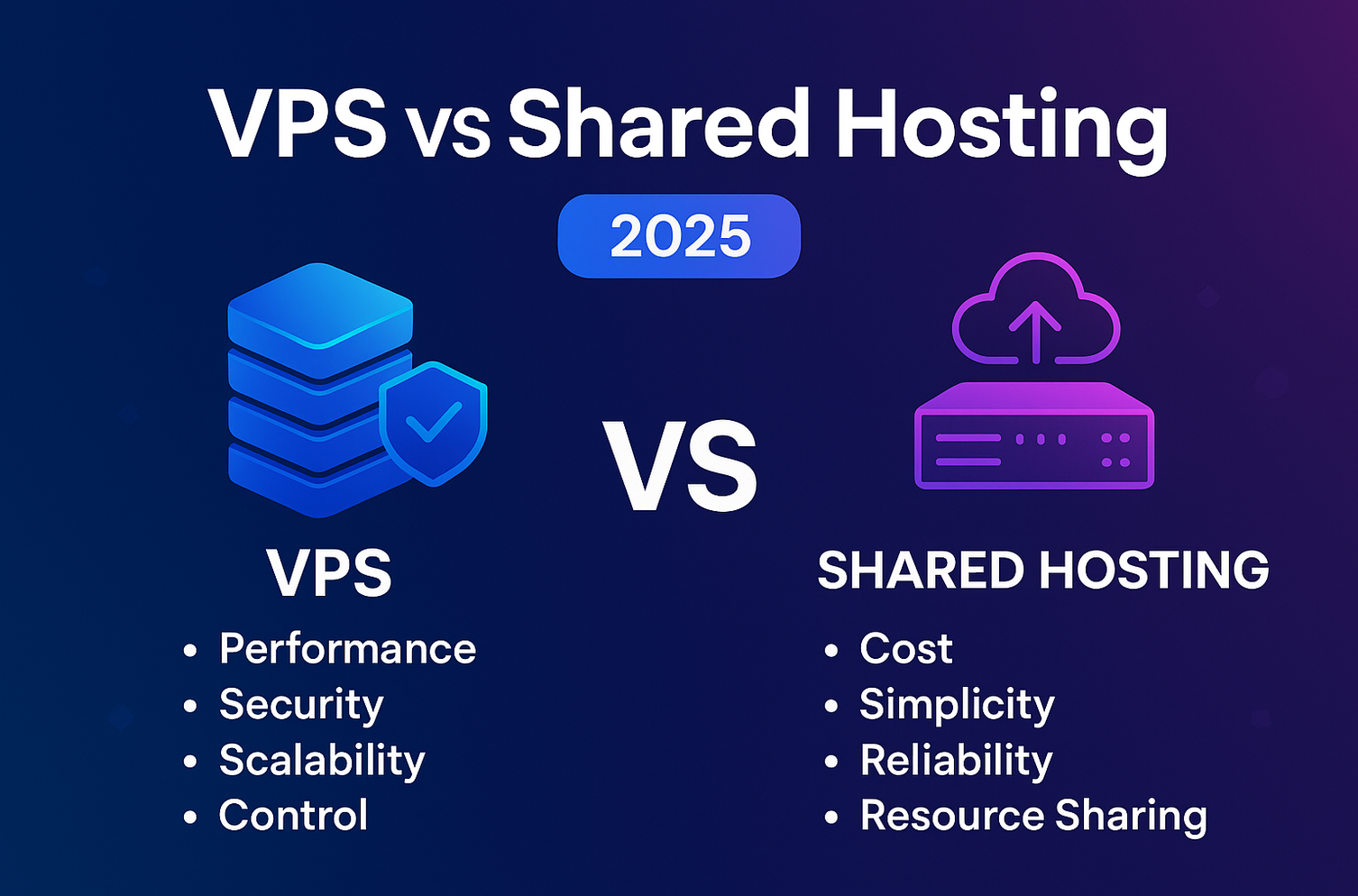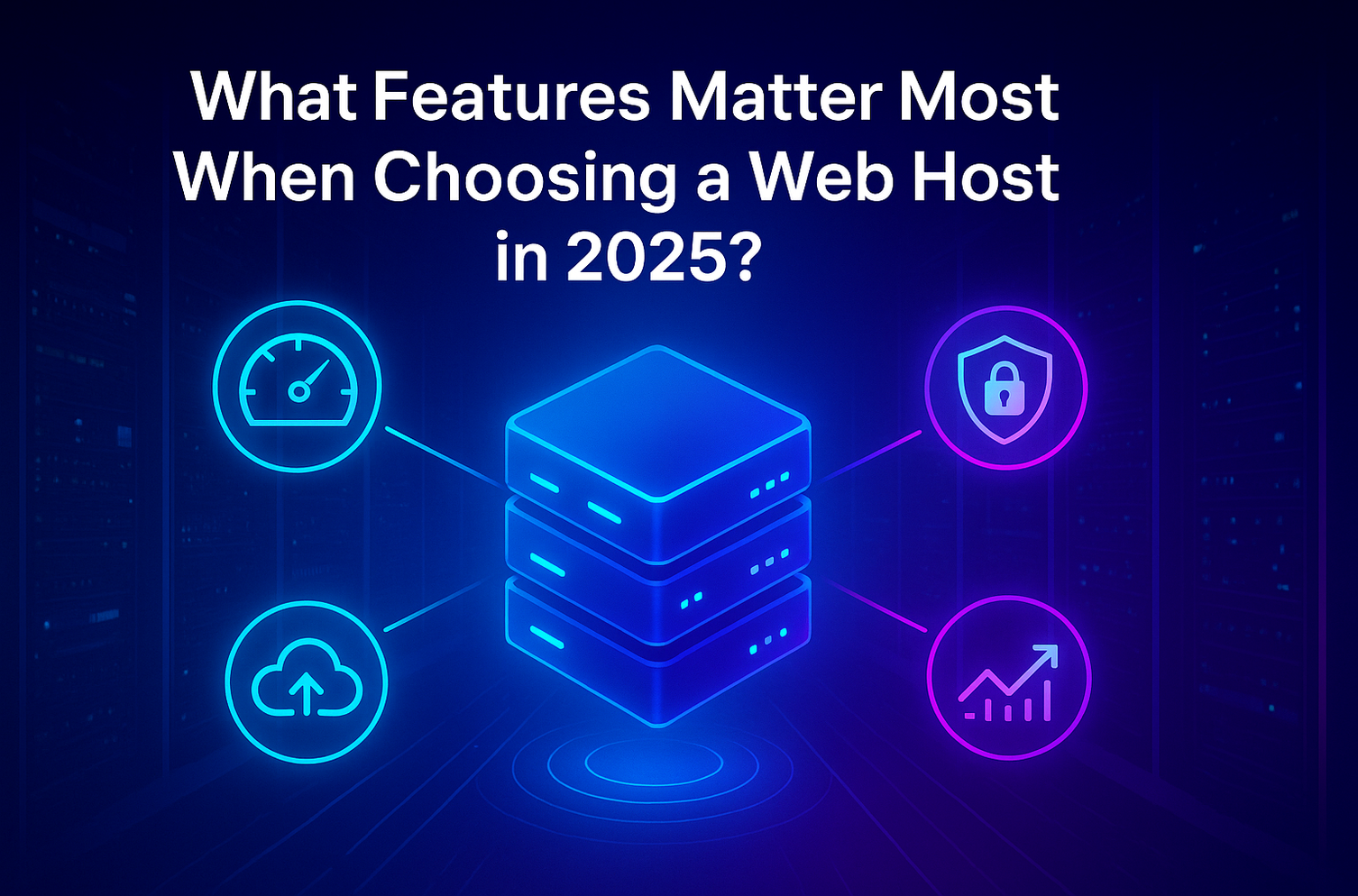5 Reasons Why Your Domain Gets Blocked

Introduction
Owning a domain is the foundation of your online presence, but nothing disrupts that presence faster than having your domain blocked. When a domain gets flagged, visitors lose access, emails bounce back, and your credibility takes a hit. Understanding why this happens is the first step toward protecting your brand. Below are five major reasons that often lead to a blocked domain.
1. Spam and Suspicious Email Activity
One of the most common triggers for domain blocking is spam. If emails sent from your domain are marked as spam or if suspicious activity like bulk unsolicited emails is detected, mail servers and security systems may blacklist your domain. This usually happens when businesses fail to monitor their outbound emails or when their accounts are compromised.
2. Malware or Phishing Associations
Domains connected to malware distribution or phishing scams are quickly flagged by browsers, search engines, and security providers. Even if your domain is hacked and unknowingly hosts malicious files, it can be blacklisted. The association alone is enough to damage your reputation and drive users away.
3. DNS and Configuration Errors
Sometimes, domains get blocked not because of malicious intent but because of poor technical setups. Incorrect DNS records, expired SSL certificates, or misconfigured email authentication protocols such as SPF, DKIM, and DMARC can make your domain look suspicious to automated filters, resulting in access restrictions.
4. Policy Violations and Illegal Content
Websites that host or promote illegal content—such as pirated software, copyrighted media, or prohibited goods—are at high risk of being blocked. Beyond outright illegal material, domains can also face restrictions for violating hosting provider policies or community guidelines that govern content distribution.
5. Blacklisting and Poor Reputation History
Domains don’t operate in isolation—they carry a reputation. If your domain has previously been blacklisted, flagged for abusive activity, or tied to spam networks, it will have a harder time staying accessible. Sometimes even acquiring a used domain with a poor history can lead to unexpected blocking issues.
Final Thoughts
A blocked domain can cost you visitors, revenue, and trust. Staying vigilant by monitoring email activity, securing your hosting environment, maintaining proper DNS configurations, and building a strong online reputation will protect your domain in the long run. At Hackton, we help businesses secure their domains, set up reliable hosting, and maintain compliance so they never have to worry about being shut down unexpectedly.


